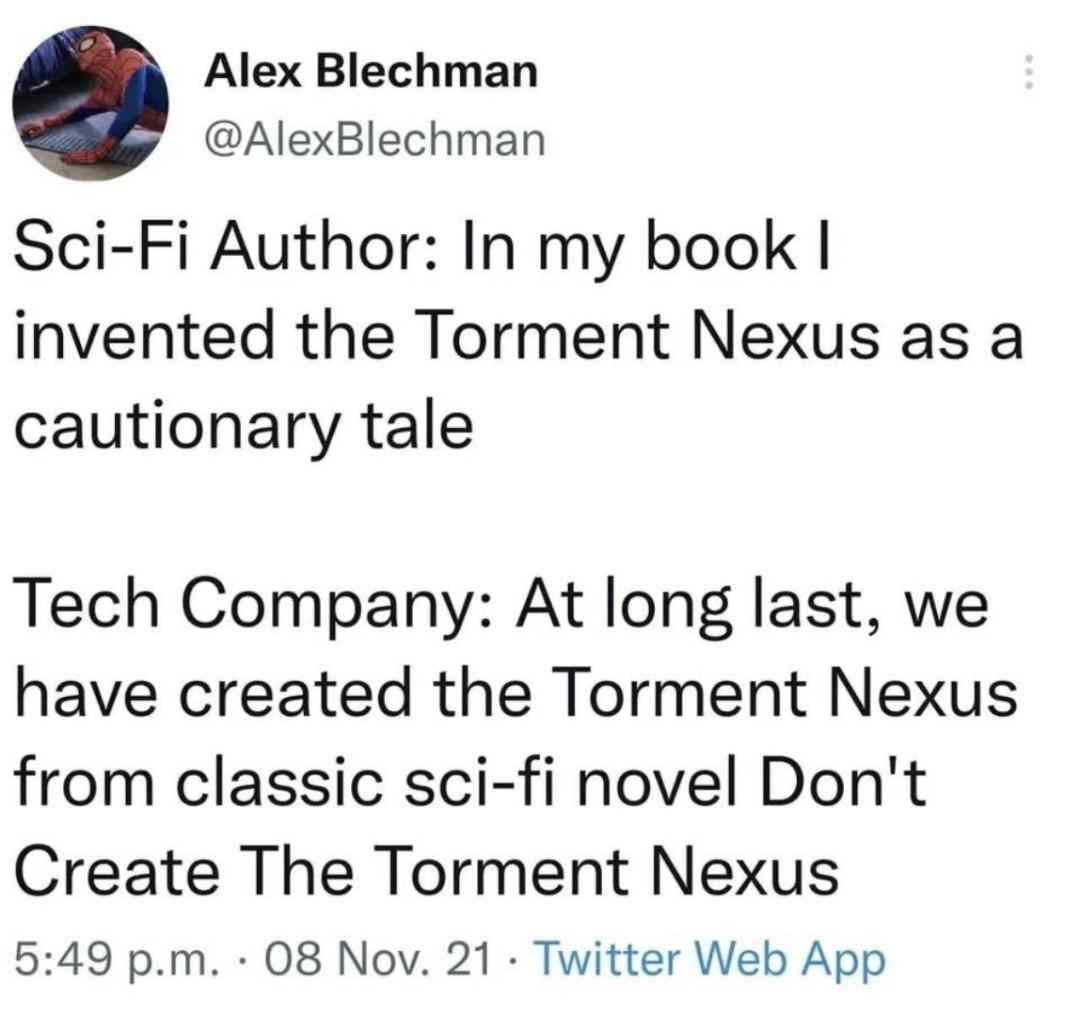this post was submitted on 22 Aug 2023
1749 points (99.0% liked)
Programmer Humor
19623 readers
78 users here now
Welcome to Programmer Humor!
This is a place where you can post jokes, memes, humor, etc. related to programming!
For sharing awful code theres also Programming Horror.
Rules
- Keep content in english
- No advertisements
- Posts must be related to programming or programmer topics
founded 1 year ago
MODERATORS
you are viewing a single comment's thread
view the rest of the comments
view the rest of the comments

This is superficially funny, of course. But I've seen it before and after thinking about it for a while I find myself coming to the defense of the Torment Nexus and the tech company that brought it into reality.
Science fiction authors are not necessarily the best authorities when it comes to evaluating the ethical or real-world implications of the technologies they dream up. Indeed, I think they are often particularly bad at that sort of thing. Their primary goal is to craft captivating narratives that engage readers by introducing conflicts and dilemmas that make for compelling stories. When they imagine a new technology they aren't going to get paid unless they come up with a story in which that new technology poses some kind of threat that the heroes need to overcome. The dark side of these technologies is deliberately emphasized by the authors to create tension and drama in their stories.
Tech companies, on the other hand, have an entirely different set of considerations. Their goal isn't just to recreate something from a sci-fi novel for the sake of it; rather, they are motivated by solving real-world problems. They wouldn't build the Torment Nexus unless they figured that they could sell it to someone, and that they wouldn't get shut down for doing something society would reject. There are regulatory frameworks around this kind of thing.
If you look back through older science fiction you can find all sorts of "cautionary tales" against technologies that have turned out to be just fine. "Fahrenheit 451" warned against the proliferation of television entertainment, but there's been plenty of rich culture developed for that medium. "Brave New World" warned against genetic engineering, but that's turned out to be a great technology for curing diseases and improving crop yields. The submarine in "20,000 Leagues Under the Sea" was seen as unstoppable and disruptive, but nowadays submersibles have plenty of nonmilitary applications.
I'd want to know more about what exactly the Torment Nexus is before I automatically assume it's a bad idea just because some sci-fi writer claimed it was.
You have not understood the books to which you refer.